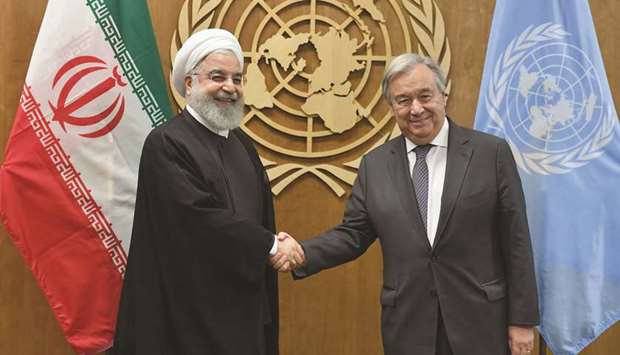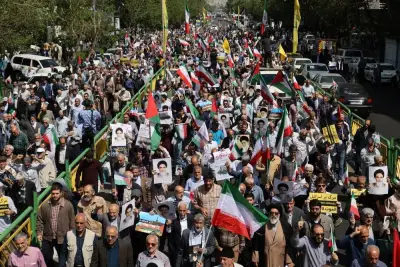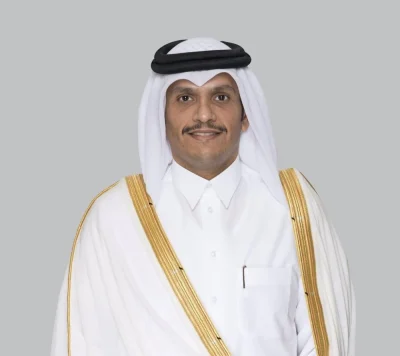Iranian President Hassan Rouhani said the US should build trust with Iran and stop pressure on the country if it’s interested in negotiations.
In an interview with Fox News on Tuesday night, regarding US President Donald Trump, the Iranian president said, “If we seek to pursue higher goals to benefit both countries, both people, it must be planned, and talks must be based on those plans.”
“But prior to that, we must create mutual trust, and the trust that is something that Trump took away from this framework.
We had an agreement.
Trump exited without a valid justification, and illegally, from an international agreement.”
The Iranian president added that Iran had been negotiating with the US for almost two years, stating that, “during a 17-day period, the foreign minister of the Islamic Republic of Iran and the US Secretary of State had continuous talks without returning to their countries.
It was extremely difficult, but we did reach an agreement which was signed, and it was enshrined in the UN Security Council resolution, and without a valid reason or cause, the US left this agreement.
So, it took away the foundation of the needed trust.
I think more than the issues it touched upon, the most basic needed issue is trust, and Trump damaged the trust between the two countries.
So, this is very important.”
Iran is fully committed to the Treaty on the Non-Proliferation of Nuclear Weapons and safeguards and protocols in its nuclear activities, stressing that Iran’s nuclear activities are for peaceful purposes, and that it’s the US that violates the treaty by testing new nuclear weapons, according to Rouhani.
Meanwhile, the Iran president closed the door on meeting Trump despite last-minute European efforts to ease tensions as the United States again ramped up punishing sanctions.
French President Emmanuel Macron had shuttled between his US and Iranian counterparts over two days at the United Nations, trying to arrange a historic encounter that he hoped could reduce the risk of all-out war in the Middle East.
But Iranian President Hassan Rouhani, addressing the UN General Assembly, said he would refuse talks so long as the United States maintains its economic pressure. “I would like to announce that our response to any negotiation under sanctions is negative,” Rouhani said.
He dismissed the idea of a photo-op with Trump, who is fond of drama and held three made-for-television meetings with North Korean leader Kim Jong-un.
“Memento photos are the final stage of negotiations, not the first one,” he said.
“How can someone believe them when the silent killing of a great nation, and pressure on the lives of 83mn Iranians, especially women and children, are welcomed by American government officials?”
“The Iranian nation will never, ever forget and forgive these crimes and these criminals,” he said. Trump had already ruled out easing economic pressure and, hours before Rouhani’s speech, his administration said it was stepping up sanctions.
On Trump’s last scheduled day at the annual UN summit of world leaders, Secretary of State Mike Pompeo said the United States would punish Chinese companies and their chief executives for buying Iranian oil.
“We’re telling China, and all nations — know that we will sanction every violation of sanctions of all activity,” Pompeo told a pressure group opposed to Iran’s regime on the sidelines of the United Nations.
China, which is embroiled in a trade war as well as myriad other disputes with the United States, is believed to be the biggest foreign buyer of Iranian oil.
The Trump administration in May said it would unilaterally force all countries to stop buying Iran’s oil, its major export, sending tensions soaring.
The United States blamed Iran for an attack earlier this month on the oil infrastructure of Saudi Arabia.
“Some have said that they’ve joined the United States; I think they have joined reality,” Pompeo said of the Europeans.
But the European powers, while criticizing Iran, believe that diplomacy is the best way forward.
The Europeans remain part of a nuclear accord negotiated by former US president Barack Obama, under which Iran drastically reduced its nuclear programme in return for unmet promises of sanctions relief.
EU foreign policy chief Federica Mogherini acknowledged struggles to preserve the pact, from which Iran has stopped strict compliance as it presses for economic benefits.
“I will not hide that it is increasingly difficult to do it,” she told reporters after talks among European powers.
“We will try and continue keeping the agreement in place and overcome the difficulties we are facing,” she said.
German Foreign Minister Heiko Maas said that there had at least been progress in moving toward diplomacy.

President of Iran Hassan Rouhani meets with United Nations Secretary-General Antonio Guterres at the United Nations in New York, yesterday.


